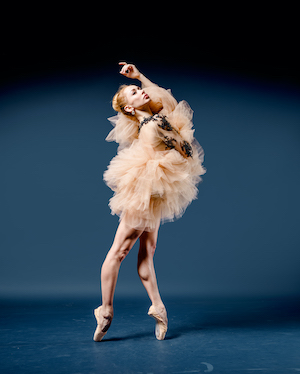Akram Khan’s DESH celebrates the importance of cultural identity with emotional honesty; an immersive piece that draws attention to the notions of identity and nationality, reaffirming Khan as a comprehensive artist, able to express even the most intimate feelings of the human soul.
Premiered in 2011, DESH is Akram Khan’s first full-length solo show. Born and raised in UK by Bangladeshi parents, Akram attempts to understand his connection with Bangladesh by presenting a show which is a personal and honest journey in search for a sense of belonging.
Part homage to his parents’ homeland and part apology for always having denied interest about their roots, DESH (meaning ‘homeland’) is an effort to confront himself with something he has always avoided.
Akram’s ability in expressing intimate feelings and telling stories through dance has reached its climax in this spellbinding masterpiece.
The starting point is the fictitious death of his father, a circumstance that encourages him to go back to Bangladesh and explore his cultural identity. Based on memories and stories imagined by Akram and poet Karthika Naïr, the piece is a sort of a dialogue he’d like to have had with his father had he not been too uncaring to listen. There are multiple stories played out, all drawn from reality and imagination.
Its opening session, with sounds inspired by the Bengali shipyard workers, sees Akram banging a sledgehammer on what is presumably his father’s grave; the rhythm is slow and steady, reminding the tone of a funeral toll. Traffic noise joins the hammering tune to accompany Akram’s hectic dance – a hypnotic combination of Indian classical dance Kathak, contemporary technique, and movements inspired by break dance and martial arts.

Touching and comic at the same time is the moment when he acts like his father; bending his head, with his dad’s face depicted on it, he imitates his gestures and later stages a dialogue with him. Showing exceptional mimic skills, he manipulates his head as if it was disconnected from his body.
Later on, an animated storytelling comes to life; Akram narrates a tale to his niece about a boy, honey and magic bees. Thanks to enchanting visual effects curated by Oscar-winning visual artist Tim Yip and lighting designer Michael Hulls, the stage transforms into an immersive and magic animation.
The audience is transported into a surreal journey through mangrove forests, trees to climb, a river to sail, and encounters with an elephant and other animals – a dream-like atmosphere that makes difficult for the spectator to look away from the stage.
The scene is abruptly interrupted by the image of a tank, revealing a sequence of historical facts that characterized Bangladesh’s turbulent past. A revolution invades the stage, a crowd of shouting people projected on the backdrop advances towards the audience; it is a breath-taking scene, amplified by Akram’s strong acting abilities.
Other scenes come in succession until a thick rain of long white ribbons slowly descends upon the stage. Interacting with this cascade of fabric, Akram can physically loose himself in it, reappearing only after a while dangling upside down. Defying gravity and cradled by a gentle music, he moves like he is trying to find something or even trying to find himself.
Towards the end he goes back to his father’s grave to pull out a Bengali traditional shirt; the moment when he takes off his shirt to put on the more traditional one, represents the successful completion of his journey, he finally found himself and is now ready to embrace his parents’ history and culture.
Several world-class artists contributed to the incredible outcome of DESH, honoured with the prestigious Olivier Award in 2012. The outstanding composer Jocelyn Pook completes the action with a soundtrack created ex novo, mixing sounds collected during trips to Bangladesh with lyrical chants and hymns. She investigated the atmosphere of the area immersing herself in the bustling streets of Dhaka.
Stories are written and imagined by poet Karthika Naïr, spoken word artist PolarBear and Khan himself. Props are brilliantly used throughout the performance, together with striking animations and light effects, supervised by Tim Yip and Michael Hulls.
It is fascinating to see how autobiographical and intimate this solo piece is, a sincere performance that showcases Akram’s exceptional abilities through his unique and eclectic dance style.
Reviewed by Francesca Marotto at Sadler’s Wells on 31 May.


